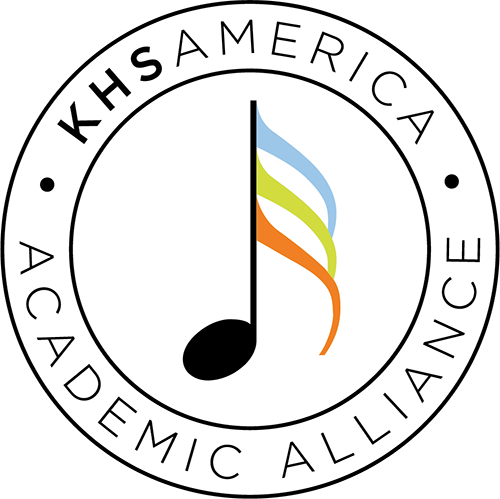At some point, band directors are asked to embrace a curriculum mandate that is not easily implemented within the teaching style of a band class. When faced with these situations, my personal philosophy is to try to find a way to integrate the mandate in a manner that is relevant to band class, engaging to students and legitimately enhances the music education of the students. Several years ago each department was asked to create at least one research-based writing content area writing assignment per course per semester. It was to be graded using a content area writing rubric provided by the school administration.
After a great deal of discussion, the music department created a Program Notes Project for each semester. Over the years, it evolved into a writing project that was valuable, engaging and enjoyable for many of the students. Even though writing projects are no longer required, the music department continues to use it because we value the connections that students make between music, reflection and research.
The primary objective of the Program Notes Project is for the students to research and write detailed program notes that contain personal reflection. The categories were developed with the assistance of colleagues in the English department and the librarian. More points are given for the categories of Analysis/Musical Description and Reflection because those are the categories that the department decided were most important.
The specific categories and point values of the project are as follows:
- Structure (10 points) – Type a minimum of three and a maximum of five high quality paragraphs.
- Grammar (10 points) – Correct grammar and spelling, appropriate vocabulary and advanced sentence structures are expected. Program notes will be assessed using the content area-writing rubric.
- Biography of the Composer and/or Arranger (10 points) – Include a short discussion of the composer’s life and emphasize contemporaneous events.
- The History of the Composition (10 points) – Describe the history and or inspiration of the composition and interesting facts about the piece.
- Analysis/Musical Description (20 points) – Describe interesting and/or challenging musical passages and ways for the audience to recognize the major sections of a piece. Avoid technical jargon and boring play-by-play ( such as “First the oboes enter with the melody, followed by a violin solo. Next, the flutes…”)
- Quotes/Stories (5 points) – Use interesting and pertinent quotes or stories from the composer, a critic, a conductor or performer.
- Reflection (20 points) – How does the piece inspire you? Why do you value it? Why do you enjoy playing it? How does your part relate to the ensemble?
- References (15 points) – List all resources. Include web sites, books, magazines, etc. in MLA format.
While it will benefit the students to create this assignment, copy it, explain to students and then collect it when due, there are a few ways to integrate and to maximize this opportunity. First, consider collaborating with the librarian and having the librarian teach the students research methods and explain library databases and resources. If scheduled in advance, the librarian could work with brass one day, then woodwinds and then percussion and then the director could have more time with a smaller cross section of the group, which benefits those students as well. If there are times when music substitute teachers are not available, this plan can also well with a substitute teacher in conjunction with the librarian.
If the school has a peer writing center, Program Notes are great opportunities for band students to pair with trained writing tutors to improve their writing skills. Since many of the musicians are also high academic achievers, there is a strong possibility that the peer writing tutors are in the band. Other students will feel more comfortable working with the peer writing tutors because they play the same instruments or are in the same band. This can really benefit students because they will feel more comfortable seeking the assistance of peer tutors for assignments in other courses as well.
Many students are highly motivated by the possibility of their writing being published so the most outstanding program notes are published in the concert program. Sometimes it can be a challenge as a band director to read all of the program notes as concert preparations are happening so it is important to make the deadline several weeks in advance of the concert. Also, having the students submit the program notes using online tools such as Google docs, Edmodo or Canvas makes the process more efficient.
While it is not required for the assignment, some students make it a habit to contact the composers or arrangers for their quotes or stories about the pieces. With so much technology at everyone’s fingertips, students enjoy emailing and tweeting composers. While some composers do not respond, the vast majority do. Recently a composer reposted and responded to a tweet, which created a great deal of excitement for the students. Once emails between a student and composer resulted in composer Steve Reisteter visiting a rehearsal to rehearse his piece “The Eighth Candle.” The student emailed Mr. Reisteter several times and eventually we organized a visit. His stories, shared experiences and rehearsal pointers inspired the students and propelled the piece to a new level of achievement.
Program Notes are a relevant way to integrate writing with band class and enhance the students’ music education experience.
About the Author
TONIA ASEL KAUFMAN is the band director at Plymouth Whitemarsh High School in suburban Philadelphia and the Choral/Instrumental Coordinator in the Colonial School District, a 2012, 2013, 2014 and 2015 NAMM Best Community for Music Education and 2014 and 2015 Grammy Signature School Semi-finalist. She was awarded a Citation of Teaching Excellence from the Pennsylvania Music Educator Association and has been recognized as a Master Teacher by the Colonial School District. Under Kaufman’s leadership, the PW Band Program has won 24 championships and is regionally acclaimed for being a highly creative band program. She has had groups perform at and has presented at the PA Music Educator Association State Conference. In addition to serving as high school band director, she has worked in a variety of roles including adjunct professor of music education, concert band guest conductor, jazz adjudicator, marching band consultant, show designer, drill designer and musical arranger and has taught a wide variety of music electives from elementary to high school. She also has held various leadership roles in the local band competition circuit. Kaufman has a Bachelor of Science degree in Music Education and Music Performance from Slippery Rock University, a Master of Education degree in Educational Administration from Temple University and National Board Certification in EA/YA Music.
The content of this Blog article or Banded Story is the intellectual property of the author(s) and cannot be duplicated without the permission of KHS America and/or the author(s). Standard copyright rules apply.



 We look forward to the evolution of this exciting program, and welcome feedback on how we can further enhance the work that you do in music education.
We are excited to offer your program the opportunity to join the KHS America Academic Alliance today.
We look forward to the evolution of this exciting program, and welcome feedback on how we can further enhance the work that you do in music education.
We are excited to offer your program the opportunity to join the KHS America Academic Alliance today.